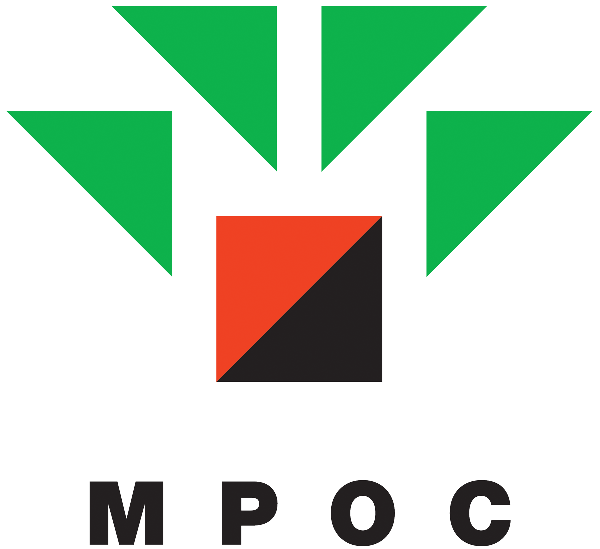KUALA LUMPUR, 20 November 2025 —Malaysia’s palm oil production surged by 203,000 tonnes (+11.0%) in October, reaching its highest monthly output in a decade. Sabah led the month-on-month increase with a gain of 72,000 tonnes (+19.5%), followed by Sarawak at 61,000 tonnes (+14.6%) and Peninsular Malaysia at 68,000 tonnes (+6.5%). The strong production performance in October was supported by the late arrival of the monsoon, improved fertilization application and favourable rainfall patterns throughout 2024.
Exports in October were similarly robust and exceeded expectations, rising 265,000 tonnes (+18.6%) to 1.69 million tonnes. Sub-Saharan Africa accounted for most of the improvement, with exports to the region hitting a record 577,000 tonnes, representing 34% of Malaysia’s total palm oil exports during the month. Exports to China also climbed to a five-month high of 110,000 tonnes.
Malaysia’s palm oil stocks rose to 2.46 million tonnes in October, the highest level since April 2019, despite export growth outpacing production. This means the rise in stocks was not driven by production or export dynamics, but rather by softer domestic consumption. In addition, Malaysia imported 708,000 tonnes of palm oil from Indonesia between January and October 2025, a 266% increase from 193,000 tonnes in the same period last year.
Palm oil prices in the global market eased 4% in November as stocks continued to accumulate, while sunflower, soybean and rapeseed oil prices were largely unchanged, widening palm oil’s discount to soft oils. As of mid-November, palm oil traded at a USD120 discount to sunflower oil, USD48 and USD 34 below soybean oil and rapeseed oil.
The temporary widening of palm oil’s discount is expected to spur import demand, particularly in markets preparing for Ramadan. In 2026, Chinese New Year and Ramadan will fall in the same month of February, when production is typically at its seasonal low due to fewer harvesting days. Historically, Ramadhan begins about a month after Chinese New Year, providing a buffer for stock building. This overlap is likely to push domestic consumption higher than normal in January and February as households and businesses stock up in preparation for the festive season.
In 2025, palm oil traded at premium or a narrow discount to soybean oil for most of the year, curbing India’s palm oil imports. As a result, India’s vegetable oil stocks have fallen to 1.7 million tonnes in October 2025, significant below the 2.4 million tonnes recorded a year earlier. Pipeline stocks also remain sharply lower than port stocks, indicating limited incoming vegetable oil shipments. Indian importers are therefore expected to take advantage of the recent weakness in palm oil prices to replenish domestic vegetable oil inventories.
Meanwhile, Indonesia’s policy uncertainty continues to lend support to palm oil prices. Market reports suggest the government may adjust export duties to secure sufficient domestic feedstock and the timing of Indonesia’s shift to a higher biodiesel mandate – whether B45 or B50, remains a key swing factor that will influence exportable supplies in 2026.
Palm oil prices are expected to find strong support at RM4,100 – RM4,200 in December and could trend higher toward RM4,500, driven by stable import demand ahead of Chinese New Year and Ramadan. Exceptionally strong production from July to October 2025 also implies a sharper-than-usual seasonal decline in output in December and into Q1 2026 as oil palm trees enter their biological resting phase. The onset of monsoon in mid-November is also expected to disrupt harvesting activities.
For more information, visit www.mpoc.org.my
For all media enquiries, please contact:
Kartigha Ayamanny, Assistant Manager, Sustainability, Promotions and Communication
Email: kartigha@mpoc.org.my
About the Malaysian Palm Oil Council (MPOC)
The Malaysian Palm Oil Council (MPOC) is dedicated to promoting the global market expansion of Malaysian palm oil and its derivatives by enhancing its image and acceptance through technological innovation, economic value, and environmental sustainability. With a vision to position Malaysia as the world leader in certified sustainable palm oil, MPOC champions the Malaysian Sustainable Palm Oil (MSPO) certification as a benchmark for ethical and responsible production. Through a strategic network of international offices in key markets – including China, India, the Middle East, Africa, and ASEAN – MPOC actively engages stakeholders, opens new market opportunities, and strengthens the global presence of Malaysian palm oil. As a cornerstone of Malaysia’s economy, the palm oil industry contributed RM109 billion in export earnings in 2024, accounting for 24% of global production and 32% of exports. MPOC remains committed to driving sustainable growth and global leadership in the palm oil sector.





